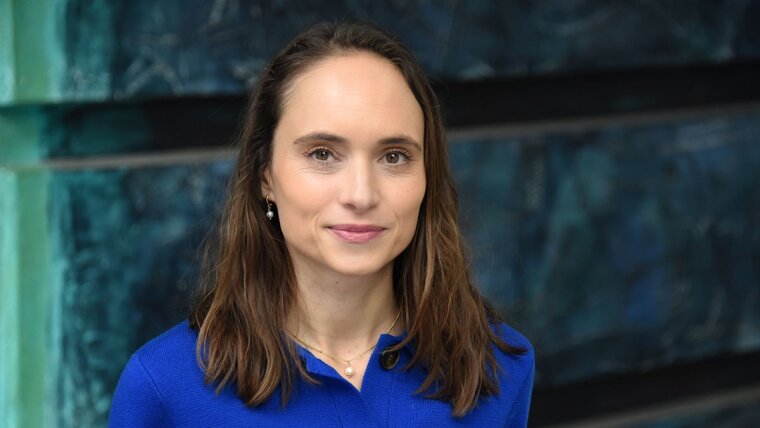
- Awards and Personnel
Published: | By: Irena Walinda
Prof. Dr Edda Humprecht's field of research is currently a frequent topic in the media: The communication scientist, who joined Friedrich Schiller University Jena in the winter semester 2023/24, is an expert in digital communication. Her expertise is in high demand, as technological developments relating to artificial intelligence (AI) have led to a sharp increase in the production and reception of disinformation. "In the Middle East war, we can currently closely observe the spread of AI-generated images."
Prof. Humprecht's research focuses on the dynamics and development of digital information landscapes in an international comparison. "I am interested in the consequences of the spread of disinformation. For example, why some societies are more resilient to manipulation attempts than others and how disinformation campaigns can be countered," says Humprecht about the aim of her research.
AI-generated images are spreading rapidly
Prof. Humprecht explains that a strong spread of disinformation has been observed during major events such as the coronavirus pandemic. False images, texts and videos are also increasingly shared on social media during elections. There are many reasons for this. On the one hand, people are overwhelmed by the flood of information and on the other, they are unsettled by disinformation. A lack of knowledge about how information is disseminated on social media also plays a role. For example, many users are not aware of their responsibility when they share unchecked images that convey disinformation. AI is involved, but only as a means to an end; the manipulation comes from people. "Our research aims to understand what content is being spread, who is spreading it and how it influences citizens."
The methods she and her team use include traditional social science approaches such as surveying users about their communication behaviour on social media. Experiments are also carried out with eye-tracking software, which can be used to gain insights into how the attention of the test subjects is controlled when capturing news. She uses computer-based methods such as machine learning to analyse large amounts of data on user behaviour in social media. “The challenge is to get hold of data from tech giants such as Meta or Google, which only allow limited access to it."
Students in Jena are “at the cutting edge"
In addition to her research, Humprecht puts great importance on teaching. She wants to sensitize her students to current topics relating to digital communication and emphasizes the importance of solid method training for a future career in research or any other desired field of work. "Jena offers a dynamic atmosphere in which students can be at the cutting edge," she says. "The relatively small institute means that personalized mentoring can be guaranteed."
Prof. Humprecht is active in various international research networks, including the International Panel on the Information Environment (IPIE) at the University of Oxford, in which researchers from various countries combine their studies in the field of resilience to misinformation.
“I am a news junkie”
Humprecht, now 39, studied communication science at Freie Universität Berlin and worked as a journalist for the Franco-German broadcaster Arte and the Neue Zürcher Zeitung, among others. She then realized that she wanted to focus more intensively on topics relating to political communication and completed her doctorate at the University of Zurich (UZH). Her academic career then took her to the Norwegian University of Science and Technology in Trondheim (NTNU) as an Associate Professor before returning to Germany. "After longer periods abroad, the perspective on news reporting in my home country is very interesting for me." She describes herself as a "news junkie" and is delighted that she was able to turn her hobby into a career. "I follow global reporting in various countries with great interest."